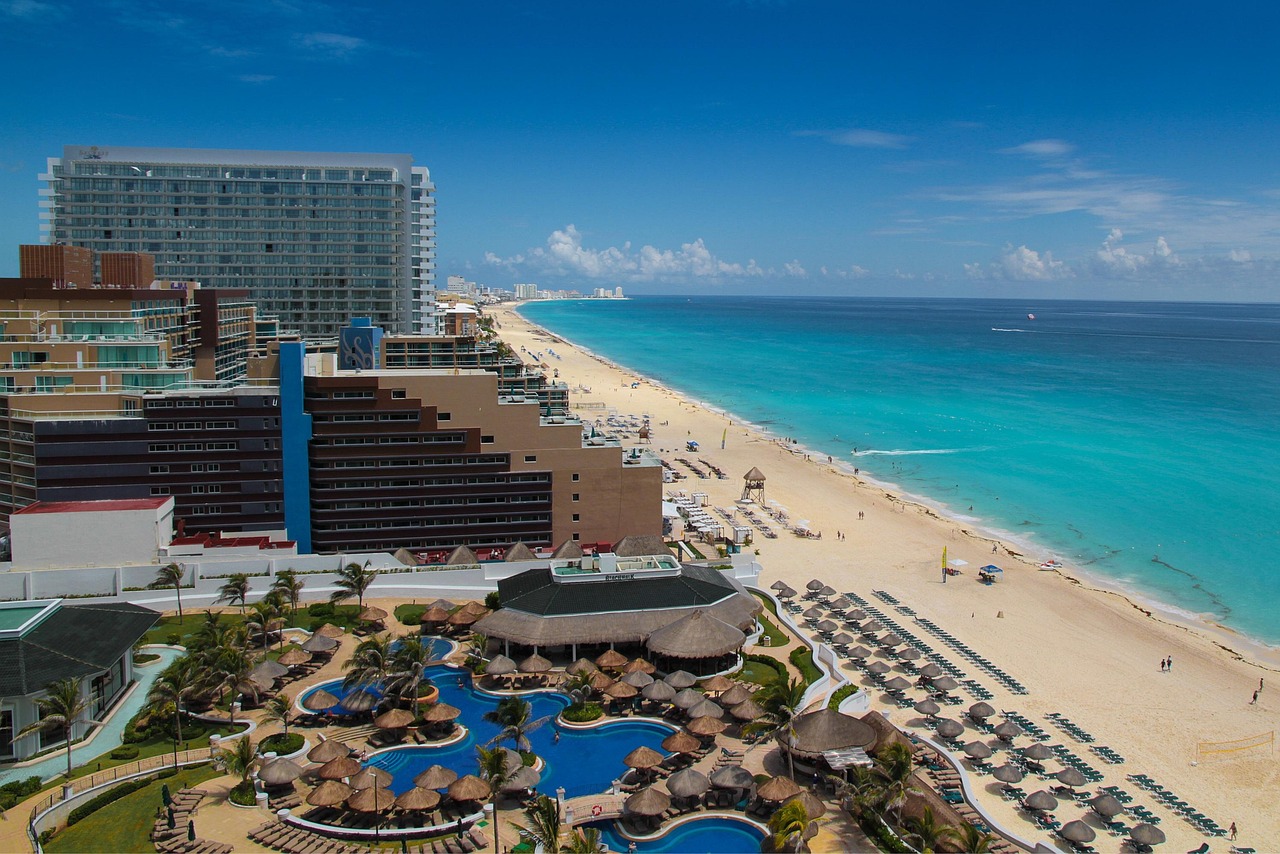Overview
Mexico hosts a steady flow of international visitors and a large expat community spread across major cities and coastal destinations. If you catch a stomach bug, twist an ankle, or develop a stubborn cough, urgent care can be the practical middle ground: prompt evaluation, essential tests, and treatment without the cost and intensity of a full emergency department.
Urgent care services are delivered by private hospitals, independent clinics, and franchise-style ambulatory centers. In larger cities and tourist hubs, English is commonly spoken and billing is straightforward. You typically pay at the point of service and receive itemized receipts for potential reimbursement from your insurer.
Important: If symptoms point to a life-threatening emergency—severe chest pain, major trauma, serious breathing trouble—dial 911 (Mexico’s nationwide emergency number) or go to the nearest hospital emergency department. Urgent care is best for problems that are pressing but not immediately dangerous.
What “Urgent Care” Means in Mexico
Urgent care occupies the space between routine primary care and emergency medicine. In Mexico, many private facilities offer walk-in visits, same-day diagnostics, and on-site pharmacies, so you can be assessed, tested, and treated in a single stop.
Typical reasons to go
- Fever, sore throat, sinus or ear infections
- Traveler’s diarrhea, food poisoning, mild dehydration
- Sprains, strains, suspected simple fractures
- Minor cuts, burns, rashes, insect bites
- Short-term prescription needs and basic follow-up
What urgent care doesn’t handle
- Major trauma or uncontrolled bleeding
- Severe chest pain, stroke symptoms, serious breathing problems
- Complex surgery or ICU-level monitoring
- Long-term mental health treatment plans
The main advantage is speed and coordination: triage, consultation, lab work, and pharmacy pickup often happen the same day.
Emergency Numbers in Mexico
Save these numbers while you’re in Mexico:
- All emergencies (ambulance, police, fire): 911
- Roadside assistance (Green Angels / Ángeles Verdes): 078
The nationwide 911 service dispatches ambulance, police, and fire. Road travelers can also contact Ángeles Verdes at 078 for highway assistance and guidance (not a medical emergency line).
Deciding Between Urgent Care and the ER
When urgent care is appropriate
- Fever without severe breathing difficulty
- Vomiting/diarrhea with mild to moderate dehydration
- Twisted ankle, sprain, suspected hairline fracture
- Shallow cuts and small burns needing cleaning/dressings
- Skin rashes, mild allergic reactions, insect stings
- Medication refills (where clinically appropriate)
Go to ER or call 911 immediately
- Crushing chest pain, stroke signs, severe shortness of breath
- Large or deep wounds, major burns, significant head injury
- Heavy bleeding or suspected internal injury
- Severe allergic reaction (anaphylaxis): swelling, wheeze, collapse
- Fractures with deformity or open fractures
A quick self-check: if the situation threatens breathing, circulation, or consciousness—or is worsening rapidly—treat it as an emergency. Otherwise, urgent care is usually the fastest sensible option.
What a Visit Looks Like (Step-by-Step)
- Check-in: Show your passport or residency ID. Provide insurance details if you have coverage.
- Triage: Vital signs and a brief history help prioritize your case.
- Clinician consult: Examination, working diagnosis, and a plan for tests or treatment.
- Diagnostics: Same-day labs, X-rays, or ultrasound as indicated; results often return within hours.
- Treatment: Wound care, IV fluids for dehydration, splints, medications, or vaccinations as needed.
- Pharmacy & instructions: Pick up prescriptions on site or nearby; leave with clear after-care guidance and red-flag signs.
- Billing: Pay by card or cash; request an itemized invoice and a physician summary for insurance claims.
Tip: Keep a photo of your passport and insurance card on your phone, and have your hotel/residence address handy for any follow-up.
What to Bring & How to Prepare
- Passport (or residency card for residents)
- Insurance documents and claim instructions (if applicable)
- Payment method (major cards widely accepted; keep some cash as backup)
- List of medications, dosages, and allergies; photos of labels help
- Contact details and the address of your hotel or residence
If you use a health app or wearable, recent readings (e.g., temperature, heart rate) provide useful context for the clinician.
Fees, Billing & Insurance
Prices vary by city, facility, and complexity. The ranges below are indicative for private urgent-care style visits in Mexico; final charges depend on evaluation and any tests or procedures performed.
- Consultation: ~MXN 400–1,200 for straightforward cases; higher for complex presentations
- Laboratory tests: ~MXN 200–1,500+ depending on panels
- Imaging: X-ray or ultrasound typically ~MXN 800–3,000+
- Medications: varies; brand vs. generic affects price
- Vaccinations: pricing depends on vaccine type and availability
- At-home visit surcharge: available via select providers; expect a premium
Most visitors pay at the time of service. If you plan to claim insurance, request an itemized bill and a medical report. Some insurers arrange direct billing with network hospitals—check your policy or call your insurer in advance when possible.
Keeping costs predictable
- Ask whether tests are bundled with the consultation or billed separately.
- Request an estimate before non-urgent imaging or extensive labs.
- Keep digital copies of all invoices and reports for claims.
Language, Translation & Records
In major cities and tourist areas, many private facilities operate comfortably in English. Elsewhere, concise communication and simple tools go a long way:
- Describe symptoms plainly and note when they began or worsened.
- Show medication packaging or photos; list allergies clearly.
- Use a translation app for specific terms if needed.
- Ask for printed or emailed summaries for your records and insurer.
Hours, Access & Wait Times
Private clinics commonly operate extended daytime and evening hours; many hospital-based centers run 24/7. Walk-ins are accepted at most urgent care units, though waits are typically shorter earlier in the day. Holiday periods and local events can increase demand.
Pharmacies
Pharmacies are widespread and often open late. Pharmacists can advise on over-the-counter options and dispense prescriptions. Regulations vary by medication class; follow local law and clinician guidance.
How Urgent Care Can Help (Service Categories)
1) Common illnesses
Fever, colds and flu-like symptoms, ear/sinus infections, mild asthma flare-ups, and stomach bugs are routinely assessed. Hydration support, symptom-relief medications, and targeted testing are common.
2) Minor injuries
Wound cleaning and dressings for cuts, burn assessment, tetanus boosters when appropriate, and splinting for sprains or suspected simple fractures. Severe pain, deformity, or impaired circulation warrants ER evaluation.
3) Testing & diagnostics
Same-day blood and urine tests, rapid infection screens, ECGs, and X-rays are widely available; ultrasound is common, while CT/MRI typically require referral within the same network.
4) Immunizations & preventive care
Many centers offer routine and travel vaccinations (availability varies). Call ahead if you’re on a tight schedule or need specific vaccines.
5) Telehealth consults
Video or phone consultations can handle triage questions, minor issues, and some prescription needs. Certain medications still require in-person review by law or clinic policy.
6) At-home visits
Select providers arrange house-call doctors or nurses for hotels and residences—useful for mobility issues or privacy. Expect additional fees and variable availability by district and time of day.
7) Mental health & therapy support
Short-term counseling and onward referral to English-speaking therapists or psychiatrists can be arranged. For ongoing care, private mental health clinics and teletherapy platforms operate across major cities.
City Notes: Mexico City, Guadalajara, Monterrey, Cancún
Mexico City (CDMX)
The capital concentrates a wide range of private hospitals and clinics, especially in central and western districts. English-language services are more common in international facilities. Costs trend higher than in smaller cities, but diagnostics and specialist access are efficient.
Guadalajara
A major urban center with robust private healthcare options. Waits can spike during evenings and weekends; mornings are typically calmer. Many clinics offer same-day imaging and labs.
Monterrey
Known for advanced private hospitals and corporate medicine networks. English support is reasonably available in facilities that cater to international visitors and business travelers.
Cancún / Riviera Maya
Tourist-heavy zones have convenient access to private clinics and pharmacies. Prices may be higher in resort areas, but English-speaking staff are common and logistics (transport, payment) are straightforward.
Self-Care & Over-the-Counter Options
For mild issues, rest and hydration may be enough before seeking in-person care. Pharmacies can help you choose over-the-counter options appropriate to your symptoms—always follow labels and consider interactions with your regular medications.
Hydration & GI care
- Oral rehydration salts (sales as “suero oral”)
- Antiemetics / antidiarrheals (as directed)
- Light meals while recovering
Pain & fever
- Paracetamol / acetaminophen
- NSAIDs where suitable for you
- Rest and temperature checks
Skin & allergy
- Antihistamines for bites or mild reactions
- Topical antiseptics and burn gels
- Moisturizers for sun/wind exposure
Seek urgent assessment for persistent high fever, bloody stools, severe abdominal pain, worsening shortness of breath, chest pain, fainting, or neurological symptoms.
Traveler Health Tips & Prevention
- Hydrate: Heat and altitude changes (in some regions) can dehydrate quickly—carry water.
- Food savvy: Choose reputable venues; be cautious with buffet foods that have sat out.
- Sun & heat: Use sunscreen, hats, and shade; pace outdoor activity during midday.
- Travel kit: Bandages, antiseptic wipes, pain relievers, antihistamines, and any routine meds.
- Act early: If symptoms persist beyond 24–48 hours or red flags appear, visit urgent care.
- Paper trail: Keep digital copies of prescriptions, vaccination records, and clinic receipts.
Frequently Asked Questions
Will clinics take my travel insurance?
Many visitors pay at the time of service and later claim reimbursement. Some hospitals have direct billing arrangements for certain insurers—check your policy or call your insurer for network details.
Is English widely spoken?
In Mexico City, Monterrey, Guadalajara, and tourist areas like Cancún, many private facilities operate in English. Bring medication names and allergy details to speed the visit.
Do I need an appointment?
Walk-ins are usually fine for urgent care, though scheduling can reduce waiting—especially if imaging or multiple tests are anticipated.
How fast are test results?
Basic labs and X-rays often return the same day—sometimes within hours. More complex studies may take longer or require follow-up.
Can I get a house-call?
Some providers offer doctor or nurse visits to hotels and residences for an added fee. Availability varies by district and time.
Glossary: Useful Spanish & Medical Terms
- Hospital: Hospital
- Clínica: Clinic
- Médico / Doctora: Doctor (male) / Doctor (female)
- Enfermero / Enfermera: Nurse (male/female)
- Medicamento: Medicine
- Seguro de salud: Health insurance
- Alergia: Allergy
- Receta: Prescription
A simple written list of symptoms, timing, and allergies in English is usually enough in private clinics. Translation apps can display Spanish alongside English if needed.
Key numbers: 911 (all emergencies) and 078 (Ángeles Verdes for highway assistance).
Disclaimer
This guide is an informational resource for visitors and residents in Mexico and does not replace medical advice. Always seek professional care for diagnosis and treatment. In life-threatening situations, call 911 or go to the nearest emergency department.
Last updated: August 2025


